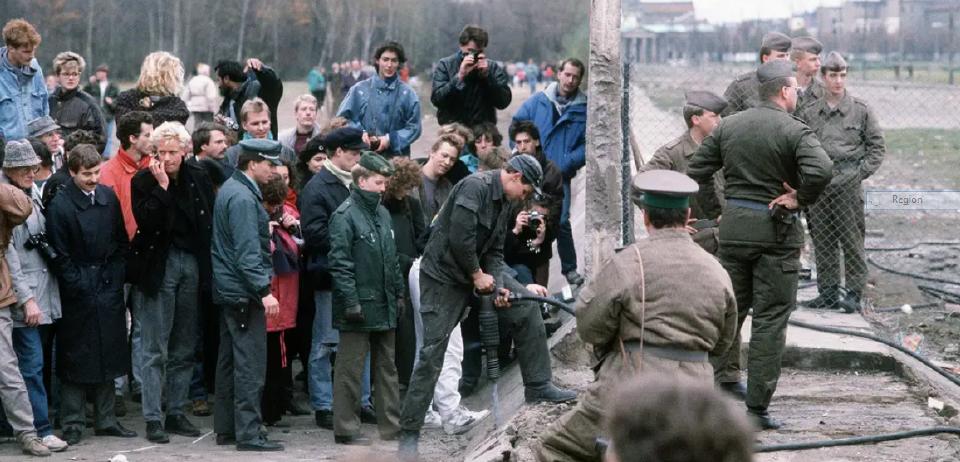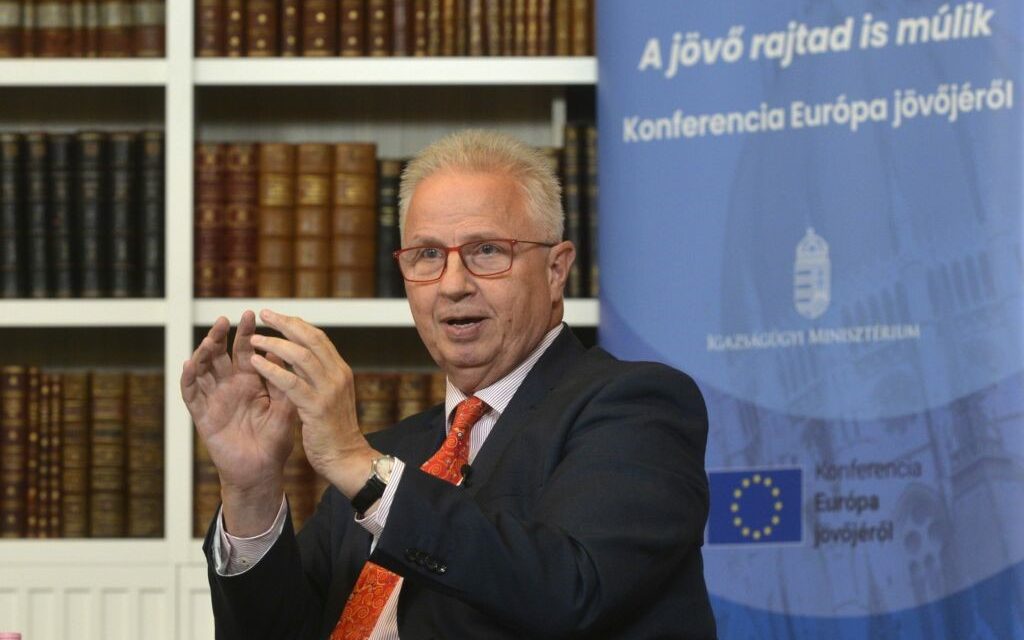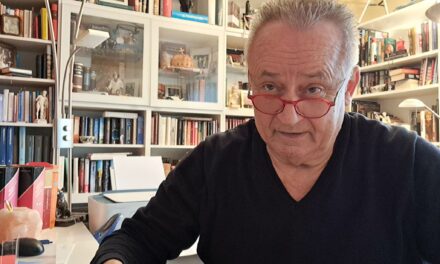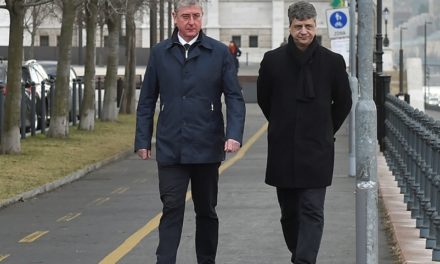Sixty years ago, the Élysée Treaty was signed, a symbol of reconciliation between the French and German nations. László Trócsányi examined the most important milestones of the last six decades of Europe in his article published on the website of the European Conservative .
The treaty signed by French President Charles de Gaulle and German Chancellor Konrad Adenauer in January 1963 marked a breakthrough in the cooperation between the two countries. The Franco-German compromise brought peace and prosperity to Western Europe. It offered a vision that gave new impetus to the continent: it sent the message that Europe, European civilization, had survived the devastation of the war and was willing and able to fight for its own future. The collaboration paved the way for the so-called Les Trente Glorieuses , meaning thirty glorious years. But how long did this momentum last? How can Franco-German reconciliation be evaluated from the perspective of sixty years?
How did the French-German leadership role change, what opportunities did the two countries have, did they take advantage of them, and what challenges or threats do they currently face?From a historical point of view, French-German cooperation can be divided into two major periods: the period before the collapse of the Soviet Union, and the decades following the regime change. The first period brought unparalleled economic development and prosperity, while successfully laying the foundations of the European cooperation framework.
In a few short decades, Western Europe became the best place to live, which gave hope to European countries behind the Iron Curtain. The leading role of the Franco-German partnership was not only unquestionable, but also indispensable in this process.

Tearing down the Berlin Wall / Source: The European Conservative
At the same time, its influence was largely limited to economic cooperation and success, as well as industrial and agricultural policy. During his visit to Berlin, Charles de Gaulle expressed his optimistic wish that Europe could overcome its divisions and once again become "the focal point of civilization".
His hope was that a potential alliance of independent states "from the Atlantic to the Urals" would place Europe among the world powers.But this idea unfortunately remained a wishful dream for a long time on the old continent, which was divided by the great powers. Without the help of the United States, Western Europe could not guarantee its own security, while freedom, independence and the possibility of self-determination were suppressed by the Soviet regime in Eastern Europe. The Franco-German partnership – just like the pro-integrationist elite – did not know much about this division and over time became more and more resigned to the situation. The Iron Curtain seemed to have become an accepted part of the geopolitical map of Europe, and the European situation was considered stable and unquestionable.
In light of the above, the American political turn, President Ronald Reagan's memorable remarks at the Brandenburg Gate in June 1987 ("Mr. Gorbachev, tear down this wall!") and the collapse of the Soviet Union offered a historic opportunity for both the Franco-German partnership and Europe.
Germany, divided by walls and watchtowers, was reunited, while the withdrawal of Soviet tanks meant that European countries regained control of their own destiny. The countries that regained their freedom accepted the leadership of the Franco-German alliance as a way of returning to a Europe where diversity and autonomy could be preserved, where common European spiritual roots could be protected and prosperity could be created.
And with the Maastricht reforms, the Franco-German alliance began the ambitious deepening of European integration and the expansion of its role to other areas beyond the economic dimension.
To this day, it is true that most EU member states agree with what Germany and France decide.
This leadership has often been defined by personal leadership qualities and visions, such as Chancellor Helmut Kohl's charisma in his insistence on German reunification, or Emmanuel Macron's vision of Europe's strategic autonomy, which is widely criticized in his own country.
At the same time, the euphoria surrounding the fall of the Berlin Wall was quickly overshadowed by storm clouds. After the regime change, Europe's first major trauma was the outbreak and escalation of the civil war in Yugoslavia. The severity of the conflict exceeded the capabilities and strength of Franco-German cooperation, and the war ended with American intervention.
The Central European countries were also disappointed compared to their initial rosy expectations. The economic transition turned out to be much more difficult than they thought, even traumatic in some cases, while their accession to the EU and their economies catching up with the West were delayed.
Many in these nations even fear the predominance of the Franco-German alliance, which creates a gap between the EU's power center and the periphery. This is understandable, since throughout their history they fought to avoid exactly this.
The 2008 financial crisis highlighted the economic breakdowns and the extreme vulnerability of some European countries, questioning the sustainability of the welfare society model.The different responses to the migration crisis of 2015 cast doubt on the unity of European identity, intellectual and spiritual roots, and commitment to civilizational values, which was previously considered unbreakable.
Although the German economy is strong, European innovation and competitiveness are declining and it is constantly lagging behind in its role in globalization. In addition, Europe has lagged behind the rest of the world in terms of demographic indicators and defense spending. The Franco-German joint role in 2014 was still able to guarantee the security of the old continent by facilitating the conclusion of the Minsk agreement, but a few years later it proved too weak to prevent the outbreak of the conflict in Ukraine.
The European self-determination regained three decades earlier was threatened by Europe's return to the geopolitical collision zone of the superpowers.
This is exactly why voices have appeared in Europe that compete with the trend offered by the Franco-German partnership. Great Britain's exit from the EU made him the most well-known independent voice, but the Visegrád cooperation, or even the Hungarian Prime Minister's vision of the future of Europe, can also be mentioned here.
In addition, France and Germany are on different paths on many issues. For example, they think differently about nuclear energy and the enlargement of the European Union, but they also approach European integration differently: while the French focus on institutional issues, the Germans take a more pragmatic approach and take advantage of economic integration.
At the same time, European integration alone can give them weight in the world, but for this they should become leaders with visionary skills who are willing and able to preserve the cultural and spiritual roots that connect all European nations and give a future to European civilization.Featured image: Attila Kovács/MTI












